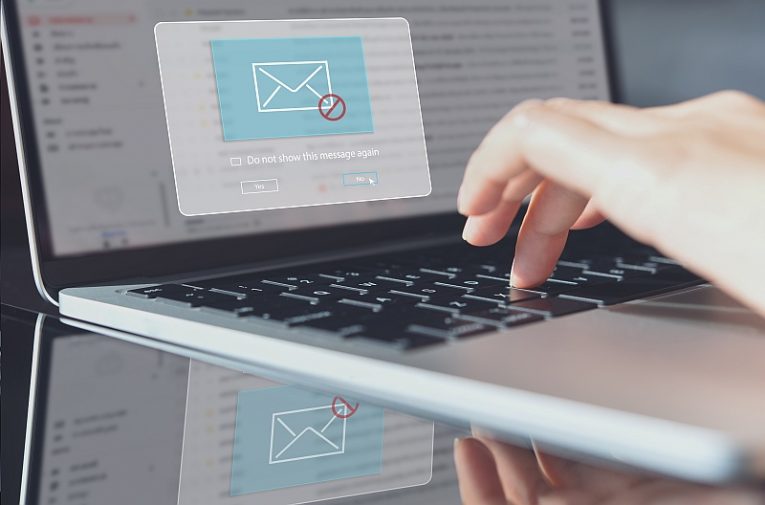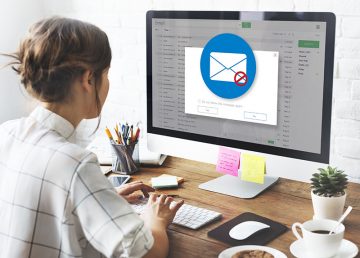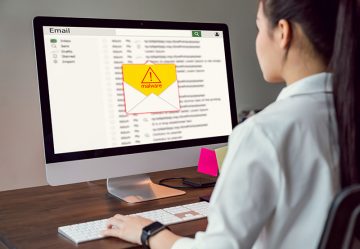Don't Fall for The Important Invoice Information From Accounts Email Scam

Table of Contents
A Twist on Phishing Scams
The "Important Invoice Information from Accounts" email is a deceptive scam designed to impersonate an accounting department and trick recipients into revealing sensitive login information. This phishing scam targets people by claiming to provide crucial invoice details, using convincing language and a misleading subject line to create a sense of urgency.
What Makes This Email So Persuasive?
The scam email presents itself as an official notice about overdue invoices, with links to a supposed document listing "Overdue and Paid Invoices." The document is described as a PDF, with invoices marked in red for overdue and green for paid to further mimic the format of a legitimate accounts department.
What Happens When You Click the Link?
Clicking the provided link redirects recipients to a fake login page that looks authentic but is designed to steal credentials. This login form prompts users to enter their email and password to verify their identity. Any information entered here goes directly to the scammers, who then have unauthorized access to the recipient's email account and potentially other accounts linked to it.
This is what the email has to say:
Subject: RE- Account Reconciliation for SOA-Paid Overdue Invoices.
Important Invoice Information from Accounts
Please note that invoices highlighted in red are overdue, while those in green have been paid.
Overdue and_Paid Invoices_OCT. 2024.pdfDOWNLOAD
Unsubscribe - Unsubscribe Preferences
Unsubscribe From This List | Manage Email Preferences
How Scammers Use Stolen Credentials
Once scammers obtain login information, they can do more than just access your emails. They may use your account to impersonate you, send malicious emails or phishing links to your contacts, and spread the scam further. In addition, the stolen credentials can be sold on the dark web, where other cybercriminals purchase them to exploit in future attacks.
Recognizing the Red Flags
This scam follows classic phishing techniques, often using logos, formal language, and familiar business terms to appear legitimate. Invoices and accounting notices are common choices for phishing emails because people tend to pay close attention to financial matters, especially when they are presented as overdue or urgent. It's essential to remember that legitimate companies rarely send emails requiring users to verify accounts or share credentials to view basic documents.
How This Scam Compares to Other Phishing Emails
This scam shares common elements with other phishing campaigns, such as fake sign-in forms and deceptive language. For instance, similar scams include fake notifications like "Maximum Mailbox Space Allowed" or "Payment Has Been Sent," which all attempt to make users act without verifying the authenticity of the email. While these emails vary in their content, they all share the goal of obtaining sensitive information for misuse.
Why Phishing Emails Are a Gateway for Further Cyber Threats
Phishing emails, like this invoice scam, are often used to deploy additional malicious software. Infected attachments or links in these emails can lead to websites that initiate automatic malware downloads or trick users into enabling settings that allow the malware to run. For example, some phishing emails carry Microsoft Office attachments that contain harmful scripts, activated when macros are enabled.
Best Practices to Avoid Phishing Scams
The most effective defense against phishing scams is to stay vigilant. Verify the sender's email address, inspect the link destination without clicking, and be cautious with any unexpected emails asking for login information. Avoid downloading attachments from unknown senders, especially those with executable files, as these may contain malware. To protect your information, consider using trusted antivirus software and updating it regularly to guard against cyber threats.
Why It’s Essential to Only Download from Trusted Sources
Downloading software or documents from unknown sources or unofficial websites increases the risk of malware infections. Malicious attachments and downloads are a common way scammers gain unauthorized access to systems. Stick to official websites and trusted app stores, avoiding cracked software or unofficial tools that may contain hidden threats.
Final Thoughts
The "Important Invoice Information from Accounts" email is just one example of the many phishing scams circulating online. By recognizing the common tactics used, such as urgent language, fake login forms, and deceptive download links, you can better protect yourself from similar scams in the future. As phishing techniques evolve, remaining informed and cautious online will go a long way in keeping your data secure.








